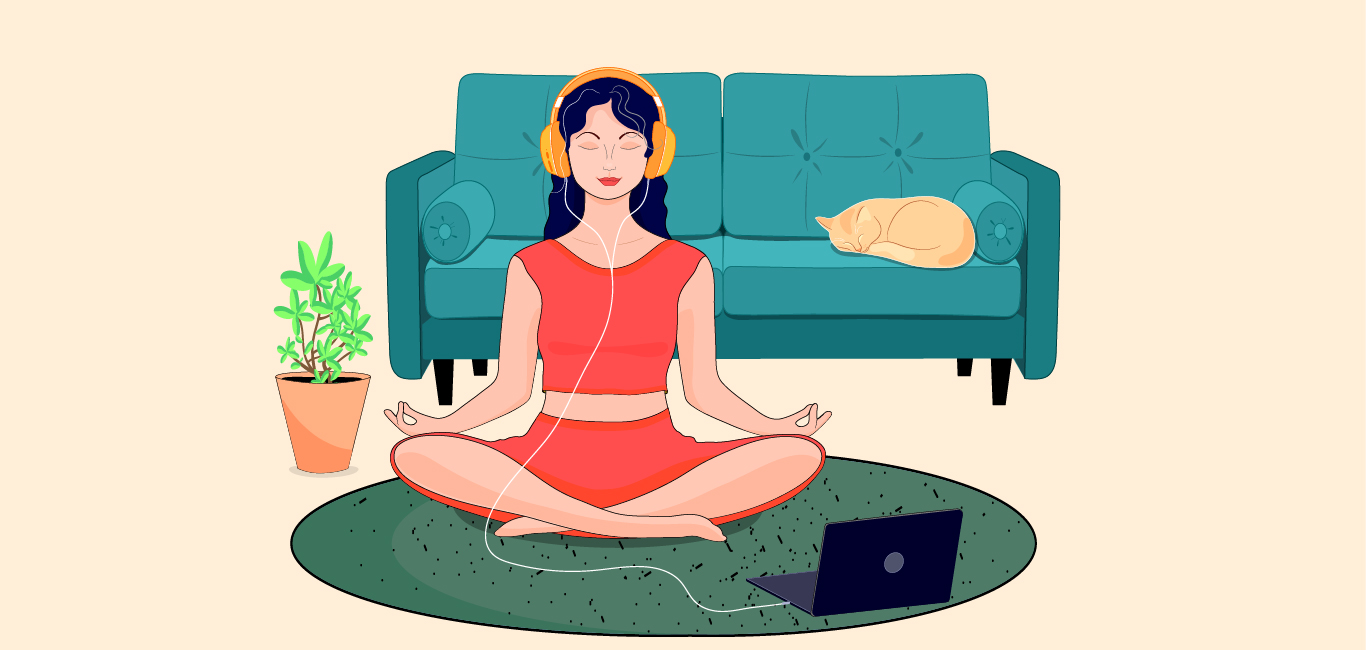
For Ananya Dubey, 27, a fashion designer from Mumbai, stress shows up in many forms: exhaustion, muscle tension, body aches, and sleeping issues to name a few. In her words, “Over the years, I have noticed that my body reacts intensely to extreme stress.” Luckily, she has devised a solution to tackle it. She says, she relies heavily on relaxation techniques such as visualisation and muscle relaxation to manage her stress.
Relaxation techniques fall under behaviour therapy and are one of the most effective techniques in symptomatic management as it decreases the amount of stress one has been experiencing. Since these techniques not only help people struggling with emotional turmoil but also those with physical ailments as well, like body ache and pain triggered by stress.
Benefits aplenty
“Relaxation techniques work well on the autonomic nervous system which encompasses the parasympathetic nervous system. When we use these techniques it slows down our heart and breathing rates and lowers the blood pressure and thus our body ends up feeling more relaxed,” says Tanya Jawa, founder, and senior clinical psychologist practising at Healthy Minds Healthy Lives clinic in Delhi.
Interestingly, this technique evokes a reaction that is at odds with the trauma responses of fight, flight, freeze, and fawn. The counterpart to the stress response of fight or flight, the relaxation response happens when the body is no longer in perceived danger. As a result, the autonomic nervous system can function normally again.
Consistency is key
“One has to be consistent with using relaxation techniques to see the benefits and needs to apply them over time,” says Jawa. We can set the frequency based on our own schedules but ideally setting aside 15 – 30 minutes for 2-3 times daily to practise these techniques can help.
Another significant point to keep in mind while deciding how often you should practice them is to keep on doing them even if you don’t feel better straight away. It will take time and regular practice before you start to feel the benefits.
Some relaxation techniques
There is a pool of relaxation techniques that one can practice managing stress responses. Among them are:
- Box Breathing – It is also known as four-square breathing. This technique involves exhaling to a count of four, holding your lungs empty for a count of four, inhaling with the same pace, and holding air in your lungs for the exact count of four before exhaling and beginning the pattern again.
- Progressive Muscle Relaxation – In this technique, one focuses on slowly tensing each muscle group and then relaxing. This usually helps one to focus on the difference between muscle tension and relaxation making you more aware of your physical sensations. Jawa says that she uses this technique the most with her clients, “I have seen 90% of my clients benefiting from it”, she adds
- Biofeedback – This is a technique that helps with controlling several body functions such as heart rate. During this technique, one is connected to electrical sensors that help them receive information about their body and therefore induce a relaxation response.
- Autogenic relaxation – In Autogenic training, you focus on feeling the warmth and heaviness in different parts of your body. By responding to your verbal commands, your body begins to alter its internal workings. This creates a feeling of emotional and physical calmness.
- Imagery (visualisation) – Imagery uses the power of your imagination and mind to change your focus to generate a relaxation response. Your visualisation can include any place or event that has the potential to relax your mind.
Some other common relaxation techniques that are as effective as the above include Tai Chi, meditation, music and art therapy, aroma therapy, and exercise.
Choose the right one for you
How do we decide which technique would work best for us? Jawa says that all relaxation techniques are beneficial. If one of the techniques doesn’t help, one can use another technique. She adds, “One could first read a bit about each technique and see which one appeals to them the best. Shortlist a few, try them over a period of one or two weeks, and see if they help you feel calmer. If one relaxation technique doesn’t work, try another technique.” She stresses that one should always consult a mental health professional in case these techniques don’t work for them. This is in case stress gets overwhelming at any point.

















